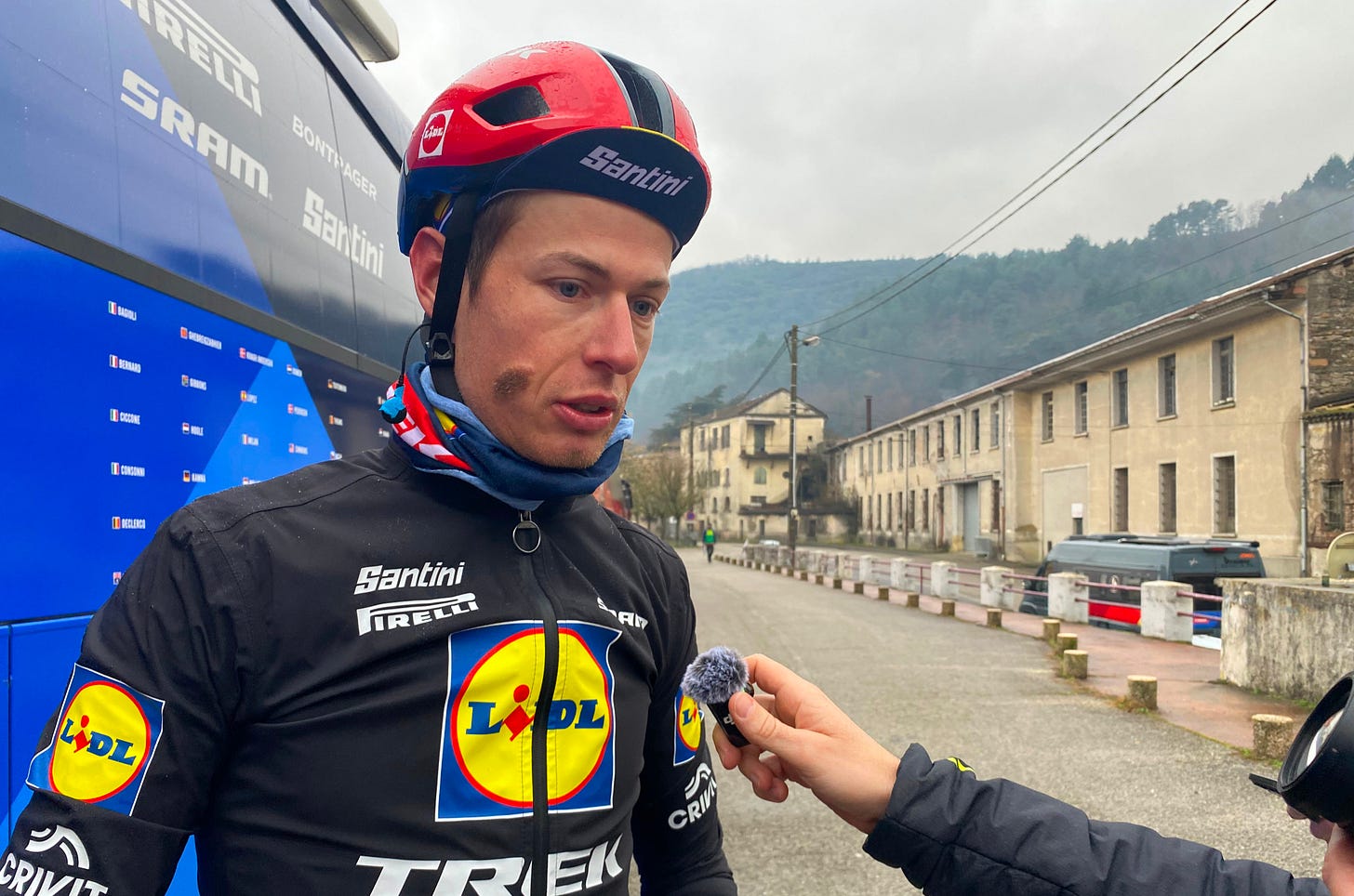A lack of unity belittles rider safety at Etoile de Bessèges
Tony Gallopin 'respects the organisation' as Alex Kirsch says a deal on safety was broken after two cars entered the peloton after 9km of stage 3
Hi everyone,
I’m writing this from the back of the hire car ahead of stage 4 of Etoile de Bessèges.
It’s chucking it down with heavy rain, thunder and lightning, and there’s talk of snow at the summit finish of Le Mont Bouquet. I wouldn’t be surprised if the stage is altered in the next few hours.
At the end of stage 3, I talked to Lotto DS, Tony Gallopin and Lidl-Trek’s Alex Kirsch.
Gallopin had just seen his rider Arnaud De Lie win the stage, and move into the leader’s jersey, while Kirsch and his teammates had climbed off and left the race due to major safety concerns.
Their views on the main talking points demonstrated the lack of unity within the sport, but I welcome you to add your thoughts on the topic in the comments below. This story is free and not behind a paywall.
If you’d like to take out a subscription for as little as just over £ 1 per week, simply click below.
You’ll receive between 7 and 10 articles per week, focusing on rac…





